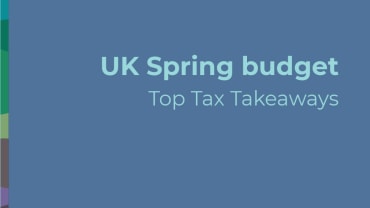The Spring Statement delivered today by Chancellor Rishi Sunak included a range of important announcements. The following are our top tax takeaways.
1. The threshold at which national insurance contribution (NICs) start to be paid by employees and the self-employed will be increased from £9,880 to £12,570 from July 2022 and will deliver a tax cut of £330 to a typical employee.
2. The proposed increase in NICs by 1.25% from 6 April 2022 to assist funding of the NHS has been retained.
3. The basic rate of income tax will be reduced by 1% to 19% from April 2024. Without a corresponding reduction in the Scottish rates of income tax, this will only affect Scottish taxpayers with savings income.
4. The first of the UK Government’s immediate measures to address the energy crisis is a 12-month cut to fuel duty by 5p per litre. This will take effect from 6pm on 23 March 2022 and is expected to save the average motorist £100 per year.
5. From April 2022, the VAT treatment of energy saving materials will be revised. The qualifying conditions will be relaxed, and the number of eligible materials will be extended to include wind and water turbines. From April 2022 until April 2027, the 5% rate of VAT on energy saving materials will be reduced to 0%.
6. There will be a consultation with business on the best way to cut and reform taxes on business investment, with plans to be introduced in the autumn budget, to tie in with the end of the super-deduction.
7. The Employment Allowance will be increased from £4,000 to £5,000 in April 2022, reducing the NIC bill of an eligible employer by £1,000 per year.
8. Previously announced improvements will be made to the research and development (R&D) tax reliefs to support data and cloud computing costs and refocus relief on R&D undertaken in the UK. Claims for R&D involving pure maths will qualify for relief. Further reforms and improvements will be announced in the autumn budget.
9. The Government will review the Apprenticeship Levy and whether it is currently doing enough to incentivise businesses to invest in training.
10. The Government will publish a tax plan which aims to reform and reduce taxes in a responsible and sustainable way by helping families with the cost of living, (for example through the NIC threshold increase), boosting productivity and growth by cutting and reforming business taxes and sharing the proceeds of growth fairly (through the decrease in the basic rate of income tax).
Contributors
Director of Corporate Tax
Partner
Director of Personal Tax
Partner
Partner















